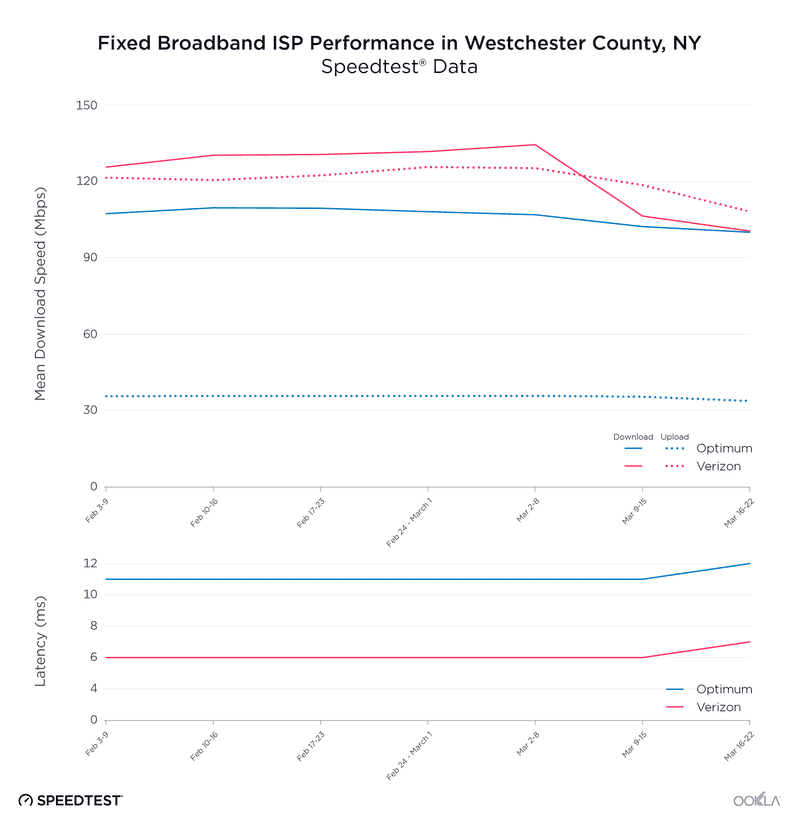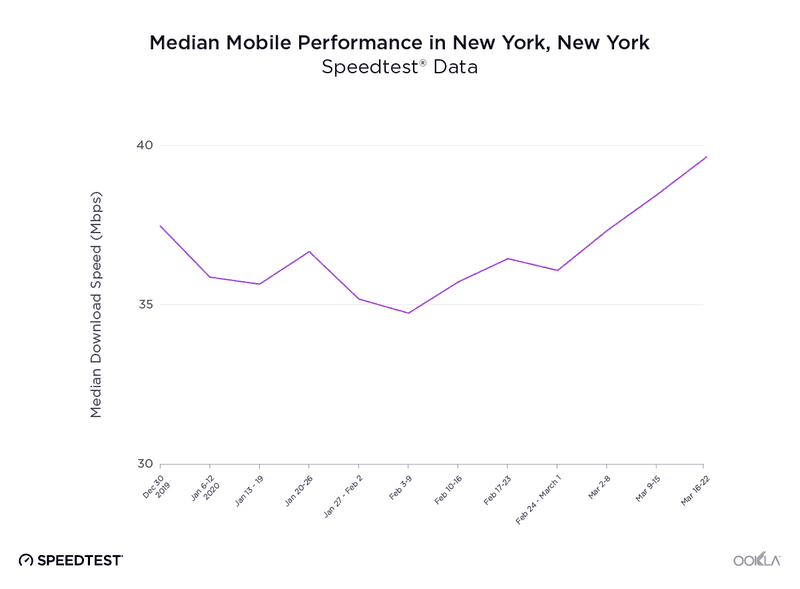
New numbers suggest that internet performance is deteriorating in many households in Westchester County, an epicenter of the Coronavirus crisis.
Download speed for fixed broadband users dropped approximately 25% between March 2nd and the beginning of last week, according to the internet speed testing company Ookla. Optimum users experienced a milder six-percent drop during that phase of the outbreak, the company said.
“In Westchester, we haven’t seen this performance degradation in the past, so it's clearly related to the outbreak,” said Doug Suttles, Ookla's CEO. “Parents working from home, kids watching videos — all of this is making usage reach new peak levels, and that congestion is going to slow everything down.”
Kyle Malady, Verizon’s chief technology officer, told WNYC that overall, their numbers suggest stability nationwide.
“I have plenty of capacity in my core to handle this stuff, and unless there’s a hotspot in a particular area, we are good,” Malady said.
Verizon’s national assessment is in line with Ookla’s analysis, which found only minor speed decreases for fixed broadband use across the country. Other internet speed testing companies, such as Broadband Now, have found slight dips in download speed in cities across the country.
In New York City, Ookla’s data found that fixed broadband download speeds remained relatively stable in the first two weeks of the month — but mobile download speeds actually increased.
“When people stay home, they are on their home broadband,” said Suttles. “So the fact that it is relieving congestion and usage on mobile networks — it makes sense for performance to improve.”
The CEO suggested that those working from home should consider shifting more of their internet use to cellular networks to lessen the demand put on fixed broadband systems.
In Europe, following calls from lawmakers, Netflix and YouTube have reduced video streaming quality to diminish stress on the system. Netflix also agreed to compress its videos for users in Australia. Video comprises the majority of data sent from internet service providers to consumers.
Verizon’s Malady says his company has noticed an “exponential” increase in the use of video teleconferencing tools like Zoom. The company is meeting this increased demand, he said, and believes their systems will be fine so long as the public doesn’t go overboard.
“If you have a house full of people, please don’t queue up a Netflix movie and leave five i-Pads running without anybody watching it,” he said. “But other than that, use the service and use it with confidence.”


